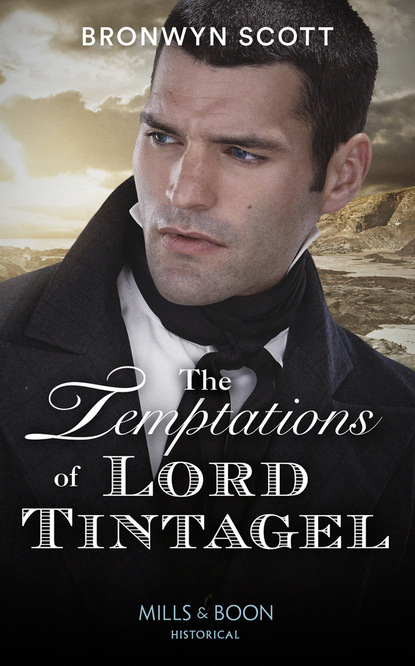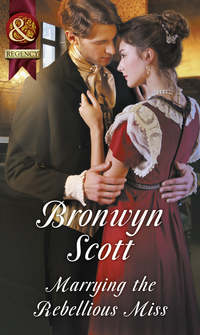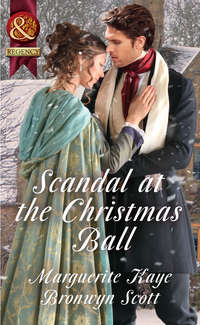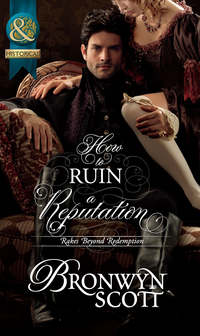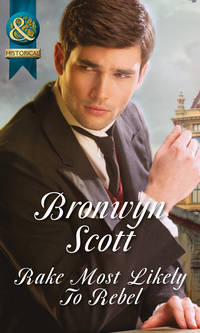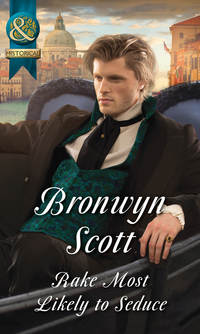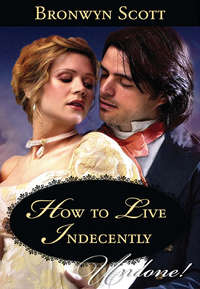
Полная версия
The Secrets Of Lord Lynford
Johns cleared his throat. ‘It’s one of the patrons, my lord. One of the widows.’ Johns’s tone was urgent now. Some of the insistence that had been pressed upon him by the unexpected visitor was now being relayed.
Eaton relaxed, although he did wonder what had upset his secretary. Two of the school’s patrons were wealthy widows and he couldn’t imagine either of them being the source of such angst. ‘Is it Mrs Penhaligon? Has she come to see that her piano is properly installed?’ Austol Penhaligon’s widow had donated her expensive Sébastien Érard double action keyboard piano, much to Cador’s delight. The other, a Mrs Blaxland, was an extraordinarily rich woman from Truro, whom Eaton had never met. He’d assumed her age, which must be considerable, had brought about an inability to travel. Her husband, Huntingdon Blaxland, had been sixty-five when he died and that had been five years ago. She likely let her money do the travelling for her these days. Thanks to her generous donations, the boys would have the finest music instructors Cador Kitto had been able to find, acquired from the Continent on his summer honeymoon.
Soft fabric rustled behind Johns, giving Eaton his only warning before no-nonsense female tones announced, ‘No, not Mrs Penhaligon, I’m afraid.’ Apple-green skirts and shiny chestnut hair swept past Johns with an imperious air that smelled of peach orchards and vanilla, the very best and last of summer. ‘I’m Eliza Blaxland.’ She ran a gloved hand along the surface of the oak table, collecting dust on the pristine tip of one finger. ‘And you, Lord Lynford, have some accounting to do.’
Eaton gave her an assessing stare. This haughty virago was Eliza Blaxland? What had the elderly mining magnate been doing with a woman like her? She was no frail grey-haired widow, practising philanthropy from her armchair. This was an elegant, sophisticated woman in her early thirties with decades of life and fire still left to her, a woman who valued being in control. If so, she’d have to adjust. He was more than happy to take her money for the school, but not her orders. He was the Marquess of Lynford and his deference was given sparingly. He could not be bought, nor could he be intimidated. ‘Accounting, Mrs Blaxland? In what way? I was unaware we had an appointment, let alone any accounting to do.’ He was usually the one who did the intimidating. How interesting that she thought the interaction might go differently. She needed to learn that her cheques did not allow her carte blanche in the school and that included showing up two days early for the open house.
She was not daunted by his cool reception. Instead, she returned his assessing stare with one of her own, making him acutely aware that she was entirely his antithesis. While he stood before her sans waistcoat, jacket and cravat, shirtsleeves wrinkled and rolled with a belatedly remembered smudge of dirt on his forehead, she was all elegant summer perfection in her apple-green walking ensemble of India muslin, matched head to toe from the brim of her green-crepe chapeau Lyonnaise to the peeping toes of her green half-boots. ‘I disagree. You are two days from opening and this place is a madhouse.’ She held up the dusty finger of her glove in reminder. ‘My money did not pay for chaos.’
Eaton summoned up a smile from his repertoire, the one known for successfully impressing older, more conservative women who occasionally found his love of adventure a tad too liberal—until they tried it for themselves. ‘I assure you, all will be in order for the open house.’ She was not convinced. Her gaze roved about the room, taking in the painters, the movers, the sweepers, casting doubt and disappointment wherever her eyes landed. Eaton grimaced. He needed to get her out of this room. There were plenty of spaces that were finished. It was too bad she hadn’t found him in one of those. ‘Might I offer you a tour, Mrs Blaxland?’ The woman was likely to poke her nose into all the rooms on her own—at least this way he could keep an eye on her. He could control a tour, although it would cost him an hour of work to squire her around. Still, better an hour of work lost than a lucrative patron. Disappointed patrons often bred other disappointed patrons. ‘On our tour, we can discuss whatever it is you’re doing here.’ It was a subtle reminder that she was the one in the wrong, the one who’d shown up uninvited.
He gestured to Cade, giving her no chance to refuse. ‘Let’s start with an introduction to our headmaster, Cador Kitto, lately from Vienna. He’s composed at the Hapsburg court.’
Cade, with his wavy blond locks and Continental élan, bowed over her gloved hand with a courtly aplomb that made Eaton envious of the man’s slender elegance. ‘A pleasure to meet you at last, Mrs Blaxland. Our students will benefit greatly from your patronage.’ A little dose of Cade could go a long way in smoothing ruffled feathers—at least that was what Eaton was hoping for, particularly when he didn’t know what had ruffled her feathers in the first place.
‘What you describe as chaos, Mrs Blaxland, I consider progress. Allow me to show you.’ They left Cade and the busyness of the classroom behind. He toured her through the students’ rooms on the third floor, showing her chambers with neatly made beds, braided rugs, dust-free wardrobes and bright white curtains hanging at the windows. The rooms smelled of lemon polish and linseed oil. ‘Mr Kitto’s wife designed the dorms,’ Eaton explained, making no effort to hide his pride. ‘She believes the homelier the place feels, the more comfortable the boys will be here.’
‘And the less likely they will be to leave,’ Mrs Blaxland translated in more blunt terms. ‘Tell me, how is enrolment? Do we have enough boys to fill these chambers?’
Eaton shut the last door behind them and directed her back towards the staircase. ‘We have two-thirds of the rooms accounted for, which I think is excellent for a first semester.’ Twenty-one boys ranging in age from seven to fourteen would be arriving the day after the open house. ‘Once word spreads regarding the quality of student and the superiority of musical education we offer at the Cornish Academy, we will reach capacity soon enough,’ he assured her, but her sharp green eyes met his assurances with questions.
‘Do you have quality students?’ she asked pointedly. ‘I think the challenge of such a school is not the idea of it, but the location, as I’ve mentioned before in correspondence. Why would a person of any talent want to travel to the wilds of Cornwall for a musical education when one could be in London? Or go abroad? I fear those who have choices will not choose the academy at Porth Karrek.’
She was bold-tongued, her comments blunt and bordering on rude. Perhaps that was simply how it was in business circles where money mattered more than manners. Eaton chose to be impressed with her analysis rather than offended by the implication that the academy would only be capable of drawing mediocre students.
‘The talent you seek will come if you and the other patrons tell them to. Quality enrolment is all of our obligation.’ Richard Penlerick had been adamant on that issue. He’d been promoting the academy in London just days before the murder. ‘One cannot simply throw money at a project and expect that to be enough to ensure success.’ The words came out harshly against the sudden tightness of Eaton’s throat, but he wouldn’t apologise for them. If Eliza Blaxland took his response as a scolding, then so be it. He wasn’t entirely sure he didn’t mean it as one. He was the son and heir of a wealthy family. If it had only been about money, he could easily have bankrolled the school entirely by himself. He didn’t need patrons’ funds the way a struggling orphanage in St Giles did. He needed the names and reputations behind the funds.
Eaton cleared his throat and offered Richard Penlerick’s often-voiced sentiment. ‘The quality of our students will depend on the quality of our patrons. That is why I sought you out in particular. You are well known in Cornish circles for your appreciation of education.’ Even if those circles had failed to convey how young she was.
At the bottom of the stairs he showed her into the drawing room where the Sébastien Érard piano stood in pride of place. ‘This is where our recitals will be held. Mr Kitto will perform at the open house, of course.’ He smiled, reminding her he’d done his part in securing a well-known musician for headmaster, one with a name that would draw talented students.
He allowed her to appraise the Sébastien Érard with her sharp eyes before he got to the heart of the matter. ‘Surely all of this checking up could have been handled at the open house. Why have you really come, Mrs Blaxland?’ Did she have a student she was hoping to get admitted? Did she have an instructor who needed to be hired? Whoever they were, they would have to earn their place here, no matter how much money she donated. Kitto wanted only the best. They wouldn’t attract the best if they took in just anyone.
She gave him a polite smile he did not mistake for friendliness, although it did serve to warm him none the less. ‘I have found in the years of running my late husband’s mines that scheduled appointments can often result in misleading impressions. When one arrives unannounced, one sees a clearer representation of the truth.’ She was already a fortress of perfection in her dress and in her speech, but in her directness she was nigh on impenetrable. Eaton felt the urge to penetrate that directness, to lay siege to its walls.
‘You mean an ambush, Mrs Blaxland?’ Sparring with her was quite a warming exercise indeed. A part of him that had been dormant since returning from London was waking up.
‘An ambush assumes someone can be taken by surprise, that someone lets his guard down,’ she countered smoothly. ‘If one is always prepared, one cannot be caught unawares.’
When was the last time Eliza Blaxland had been taken unawares? From her cool façade, he would guess it had been a while, if ever. It was hard to imagine anyone got anything past her. Eaton would take that as a challenge—not that he wanted to take advantage, but he would like to surprise her, just to prove to her that it could be done. How would she react when things were out of her control?
He studied the flawless perfection of her face, its smooth contours with its elegantly set nose, green eyes and that mouth—that gorgeous pink mouth with its full, kissable lower lip. His gaze lingered there while his thoughts drifted. What would bring a crease to those perfect features? What might fluster her well-ordered world? Had old Huntingdon Blaxland ever flustered her, aside, perhaps, from dying? Would a kiss be enough to offset that world? She was a widow, after all. He could presume she’d been kissed before. Would she like to be kissed again? He found he would like to pursue that course of action. Between Richard Penlerick’s death and the school, it had been a while since he’d felt a spark of interest.
They were hardly the thoughts one ought to have about a wealthy patroness, yet when the patroness was so aloofly, coolly attractive, it seemed a natural progression of thought to wonder, what if? They returned to the main hall, the front door just feet away, providing a less-than-subtle opportunity to bid Mrs Blaxland farewell and get on with his day. ‘If there’s nothing else, I’ll leave you here. As you have already ascertained, there’s much to be done.’
‘There is one more thing.’ She gave him another long perusing stare with those intelligent eyes. ‘I thought you’d be older. I was unaware Bude’s heir was so...young.’ She was implying that perhaps he might not be up to the task of overseeing a school, that a man of his age and station was better suited to the frivolous pursuits of London.
‘Twenty-eight is young?’ he queried with a sardonic cock of a dark brow. It was an odd remark coming from a woman who couldn’t be more than thirty-three, but time and age were different for females. ‘It’s been some time since anyone has thought of me as young. Good day, Mrs Blaxland. I will look forward to seeing you at the reception.’ He gave her a small bow in farewell. ‘I assure you that you needn’t worry. I am in my prime.’ He’d been unable to resist the final remark. Intuition suggested that no one teased Mrs Blaxland and someone ought to. People didn’t build impregnable fortresses around themselves without reason. He was intrigued as to what her reason might be.
‘You most certainly are,’ she acknowledged with a slight, indifferent nod of her head, but beneath that cool exterior, something akin to interest sizzled and flared in her gaze before it was snuffed out by practice and perhaps practicality. But it was too late. Eaton smiled over his little victory. She’d already given herself away. Eliza Blaxland wasn’t as unaffected or as distant as she appeared.
Chapter Two
It had been a long time since she’d been surprised—not since the day Huntingdon had left for the office and never returned. Five years, eight months and three weeks, to be precise. Eliza sat back against the leather squabs of her coach and let out a deep sigh. In the intervening years, she’d become used to being the one doing the surprising; she’d had to if she meant to keep the shareholders on their toes. But Eaton Falmage, Marquess of Lynford, heir to the ducal seat of Bude, had done all the surprising this afternoon. The ambush had been her idea, hers to control, but she’d not been prepared for him. Eliza reached for her fan. From the first glance of his dark eyes, his heat had nearly incinerated her glacial cool.
Years of practice had made her confident in the belief that her skills would rise to any challenge, that her icy façade could not be cracked, that she was impervious to the powers of men. Lynford had challenged her today, though, not only as a patron, but as a woman. The former, she could deal with. Patronage was simply one of many business arrangements she conducted. The latter, however, well...that was different. She hadn’t been a woman—a real woman with real feelings and affections—since the day her husband died. For her daughter’s sake and her own sake, she couldn’t afford to indulge such a fancy.
When men looked at her, they saw a female facsimile—one that dressed elegantly, spoke with cultured tones, and danced divinely; one they often sought to possess—but the illusion fell away when she sat across from them at the boardroom table and delivered her verdicts in those cultured tones. Some men called her a snake in the grass, a viper waiting to strike, others called her a Siren, luring men to smash themselves against the icy granite of her façade. But today, Lynford had been formidable, a veritable Odysseus, undaunted by her surprise visit and undaunted by her.
She wished she could say the same. Eliza plied the fan a little faster. He was not only younger than she’d anticipated, he was also younger than her by five years. He was taller, broader, endowed with dark eyes that looked into a person’s gaze and long, powerful legs. Oh, how she loved a good pair of legs on a man and his had been on blatant display with no coats to hide them. In fact, his tight breeches and open-necked shirt had hidden nothing. He’d been in utter, unmistakable déshabillé, yet he’d not once apologised for his appearance or attempted to cover it up. The primal woman in her, so rarely unleashed, had rattled the bars of her cage, thrilling at the masculinity on show, a reminder that she wasn’t dead after all. It was an uncomfortable revelation.
Eliza closed her eyes. It had been so long since she’d felt anything akin to desire, or its milder counterpart, attraction. What a shock to discover it after five years of sexless living where she didn’t dare act either too much of a man or too much like a woman for fear she would be ridiculed for overstepping herself or taken advantage of for being herself. But what a most inopportune time for that discovery. She would have preferred Lynford to be a man nearing middle age, bearing a paunch at his stomach and silver at his temples with a conservative, tired air about him. She knew how to manage those men.
Her husband had been such a man, thirty-seven years older than she when they wed. Those men populated the Blaxland Mining Corporation board of shareholders, but Lynford exuded alertness, energy, a fresh boldness. He thought himself infallible and perhaps rightly so. He was a duke’s son. He was used to asserting himself, used to ordering the world according to his desire. He was not a businessman, a man like her husband had been, who limited the scope of his world to balance sheets. And Lynford, unlike her husband, was most definitely in his prime.
She had no such experience with a man like that: a man who looked at women and openly admired their beauty, a man who didn’t patronise, a man who matched her directness with his own. Nor could she allow herself to acquire such an experience.
The one flicker of attraction she’d felt today had been nice in its own way, a reminder that she was more than a moneymaking automaton, but she could not fan it into anything resembling a flame. She had a daughter to raise and mines to run, her husband’s legacy to preserve so that her daughter would never know want and penury as she had simply because she’d been born female. Such pursuits did not leave room for passion. Such a task required that she walk a tightrope. One false step and all she’d worked for and all she envisioned for the future could be so easily lost.
Neither did such a pursuit serve her as a patron for the school. She hoped by donating generously to his school, in return, Lynford would support her bid for establishing schools for children in the villages up and down the coast wherever there was a Blaxland mine. To mix business with fleeting pleasure could jeopardise that connection.
Hence the reason for her visit today—to see if Lynford was worth the investment. Could he get the job done, or was he another lazy dilettante? She wanted to see that everything was well in hand for the opening reception. She would do her part to make sure the conservatory succeeded. Her own plans depended on it, as did keeping her own reputation intact. The trust of her shareholders was essential now as the Porth Karrek mine prepared for expansion. She’d learned early on after taking the reins of her husband’s business that one could never have too many friends, but a woman could have too many lovers—even just a single lover was often one lover too many. A misguided affair at this juncture could cost her everything, just as it had her mother, a widow left with a daughter and a fortune and no sense about how to manage the latter.
The outcome had been obvious: her mother and her money had been soon parted thanks to an affair that had blinded her to the incompetence of her lover. Eliza had been fourteen when that had happened and she’d vowed she would never put her heart above money. Nor would she put herself in a position where money wasn’t readily available. She’d set out the next day to learn all she could about managing funds, starting with the bookkeeper for the family’s mine. Knowledge was power. She believed that education could keep the wolf from the door and it could buy her independence so that she needn’t rely singularly on a marriage to save her. There were too many women like her mother who hadn’t a clue how to manage their own freedom, who needed men. Eliza was determined to avoid her mother’s mistakes. This time, for this woman, Eliza vowed it would be different. She was far too astute to fall prey to the charms of a handsome lord.
Two days later, the Academy Open House
This time, it would be different. Eliza entered the conservatory’s drawing room with that mantra firmly entrenched in her mind. Tonight, she would be ready for the oh-so-attractive Eaton Falmage. His good looks and confident manner would not catch her by surprise. She knew what to expect now and this time they wouldn’t be alone—a point emphasised as soon as she arrived. The room was practically a crush and a very well-dressed one at that, with men in dark evening clothes and women in silks populating every corner of the grand salon. It was a far more robust turnout for the academy’s opening than she’d anticipated. This was no mere gathering of a board of directors and a few patrons. But then, perhaps the outstanding attendance stood to reason. When a duke’s heir gave a party, everyone wanted an invitation.
Eliza unfurled her fan and began to stroll about the room, looking purposeful. No one need pity her aloneness. She’d made an art of it. Over the years, she’d become accustomed to attending events on her own and others had become accustomed to it, too. She arrived alone, she left alone. She’d learned not to be afraid of her own company. She actually rather enjoyed it. There was no conversation to worry over, no egos to flatter or polite compliments to muster. She could survey her surroundings at leisure, study her options and make her own choices as to how she spent her time and who she spent it with. At the moment she wanted to spend that time with Lynford. Congratulations were in order. A private smile skimmed her lips in satisfaction as she assessed her surroundings. Lynford had succeeded against what had looked like overwhelming odds. One would never guess that two days ago the place had been in varying states of chaos.
Eliza scanned the room, her gaze glancing over the masculine decor done to perfection in shades of muted teal and beige against a backdrop of walnut panelling and chair rail that ran the perimeter, interrupted only by a bank of French doors opening to the gardens beyond where paper lanterns winked. She made a mental note of the gardens—those gardens might provide a convenient escape from the crowd should she need it.
Her gaze hurried on, still seeking as it brushed over the multi-armed brass chandelier at the ceiling, the coveted Sébastien Érard, lid raised, at the front of the room—neither item enough to halt her rampant gaze. These were not the things she was looking for. She’d nearly completed her visual circuit of the room when she found him at last, standing at the fireplace, just feet from the Sébastien Érard. It was time to test her hypothesis.
The fan in her hand halted its oscillation, her mind flooding with a certain sense of satisfaction. He was what she’d been looking for. Lynford stood in profile, talking with a group of men, all dressed alike in dark evening clothes, yet he was no more like them than the sun was like the moon. She knew instantly her mantra was wrong. This time was not going to be different after all, unless one counted the fact that Lynford was fully clothed. He was no less handsome for the more formal attire. Eliza began to ply her fan in earnest.
His dark, tangled curls were tamed tonight, carefully styled into compliance, perhaps painstakingly so given the extent of their unruliness the other day. His jaw was smooth-shaven, setting off the strong planes of his face, the wide, almost simian flare of his nose, the broad, high sweep of his cheekbones beneath his dark eyes; in his face, the elegant classical construction was unabashedly at war with the harsh masculinity of his primeval ancestors. In evening clothes, the result was devastating. He stood out, a powerful stallion among the herd, a man born to lead no matter what his age.
Tonight, authority’s mantle sat comfortably on his broad shoulders, not an ounce of that breadth fabricated, even if the rest of his body gave the impression of wanting to be out of doors tramping the moors and cliffs of Porth Karrek. His was not an indoor physique. Not that she should be assessing such things. Her attendance at the conservatory’s opening reception tonight was all business and business did not mix with pleasure. Ever. Hadn’t her experience with Miles Detford taught her that much? She had too much to keep her busy between the mines and the school. She could not allow herself to be distracted with useless speculation about the Marquess of Lynford. She certainly could not allow herself to be caught staring. He might interpret a stare as interest.
Too late. She didn’t look away soon enough. Lynford caught her gaze and returned it with a wide smile, broad like his shoulders and just as genuine, the kind one gives when one is truly pleased to see someone. That worried her. After their last visit, why would he be pleased to see her? She watched in horrified fascination as he excused himself from the group gathered at the fireplace and moved towards her. There was no escaping; she was well and truly flushed out. What could he possibly want? She should be annoyed by the thought that he’d demand anything of her, but there was only intrigue where annoyance ought to be—another reminder that she was very much alive and very much a woman.



